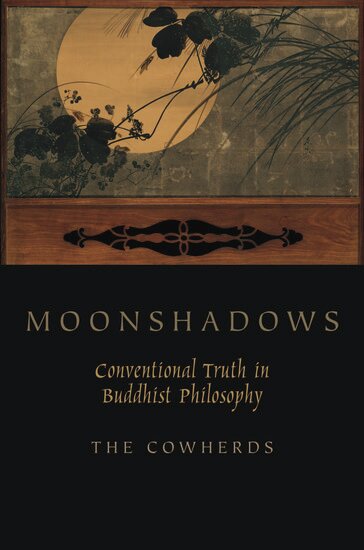
The doctrine of the two truths - a conventional truth and an ultimate truth - is central to Buddhist metaphysics and epistemology. The two truths (or two realities), the distinction between them, and the relation between them is understood variously in different Buddhist schools; it is of special importance to the Madhyamaka school. One theory is articulated with particular force by Nagarjuna (2nd C CE) who famously claims that the two truths are identical to one another and yet distinct. One of the most influential interpretations of Nagarjuna's difficult doctrine derives from the commentary of Candrakirti (6th C CE). In view of its special soteriological role, much attention has been devoted to explaining the nature of the ultimate truth; less, however, has been paid to understanding the nature of conventional truth, which is often described as "deceptive," "illusion," or "truth for fools." But because of the close relation between the two truths in Madhyamaka, conventional truth also demands analysis. Moonshadows, the product of years of collaboration by ten Cowherds engaged in Philosophy and Buddhist Studies, provides this analysis. The book asks, "what is true about conventional truth?" and "what are the implications of an understanding of conventional truth for our lives?" Moonshadows begins with a philosophical exploration of classical Indian and Tibetan texts articulating Candrakirti's view, and uses this textual exploration as a basis for a more systematic philosophical consideration of the issues raised by his account.
The Cowherds are an international collective of scholars in Buddhist Studies. For "Moonshadows" this collective consisted of Georges Dreyfus, Bronwyn Finnigan, Jay Garfield, Guy Newland, Graham Priest, Mark Siderits, Koji Tanaka, Sonam Thakchoe, Tom Tillemans & Jan Westerhoff.
Reviews:
Jeremy E. Henkel in Philosophy East and West, 63:2, 2012, 428-429.
Ligeia Lugli in the Bulletin of the School of Oriental and African Studies, 75:1, 2012, 196-198 [link]
Eviatar Shulman in The Journal of Religion 92:1, 2012, 161-163.
Richard Nance in Religious Studies Review 38: 4, 2012, 260-261.
Jonathan Gold in Sophia 52:2, 2013, 397-399.
Christian Coseru in Journal of Buddhist Philosophy 2, 2016, 285-290.
See also:
Amy Donahue: "For the Cowherds: Coloniality and Conventional Truth in Buddhist Philosophy", Philosophy East and West 66: 2, 2016, 597-617.
The Cowherds: "Is 'Moonshadows' lunacy? The Cowherds Respond", Philosophy East and West 66: 2, 2016, 617-621.
Amy Donahue: "Reply to the Cowherds: Serious Philosophical Engagement with and for Whom?", Philosophy East and West 66:2, 2016, 621-626.
The Cowherds are an international collective of scholars in Buddhist Studies. For "Moonshadows" this collective consisted of Georges Dreyfus, Bronwyn Finnigan, Jay Garfield, Guy Newland, Graham Priest, Mark Siderits, Koji Tanaka, Sonam Thakchoe, Tom Tillemans & Jan Westerhoff.
Reviews:
Jeremy E. Henkel in Philosophy East and West, 63:2, 2012, 428-429.
Ligeia Lugli in the Bulletin of the School of Oriental and African Studies, 75:1, 2012, 196-198 [link]
Eviatar Shulman in The Journal of Religion 92:1, 2012, 161-163.
Richard Nance in Religious Studies Review 38: 4, 2012, 260-261.
Jonathan Gold in Sophia 52:2, 2013, 397-399.
Christian Coseru in Journal of Buddhist Philosophy 2, 2016, 285-290.
See also:
Amy Donahue: "For the Cowherds: Coloniality and Conventional Truth in Buddhist Philosophy", Philosophy East and West 66: 2, 2016, 597-617.
The Cowherds: "Is 'Moonshadows' lunacy? The Cowherds Respond", Philosophy East and West 66: 2, 2016, 617-621.
Amy Donahue: "Reply to the Cowherds: Serious Philosophical Engagement with and for Whom?", Philosophy East and West 66:2, 2016, 621-626.